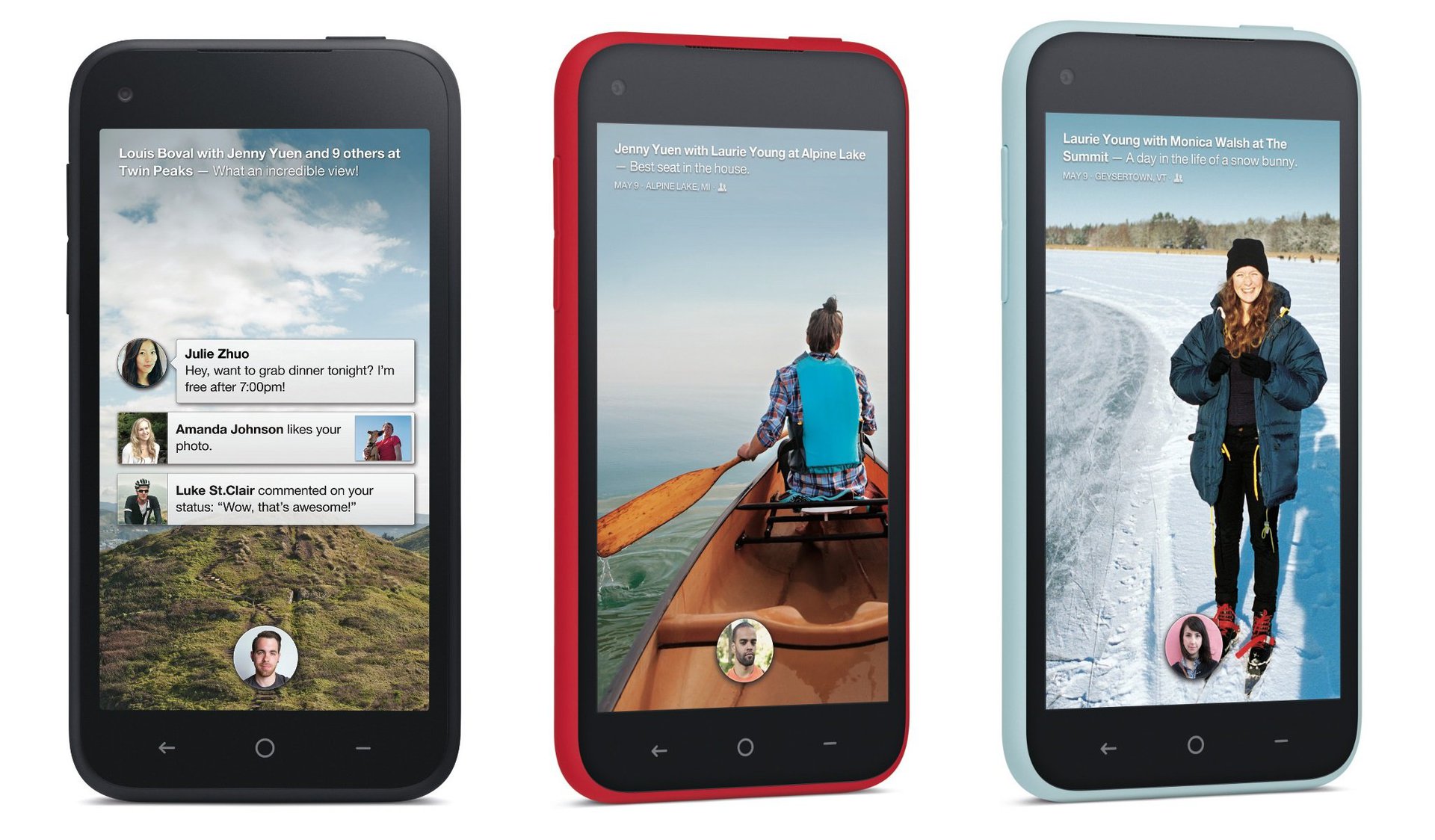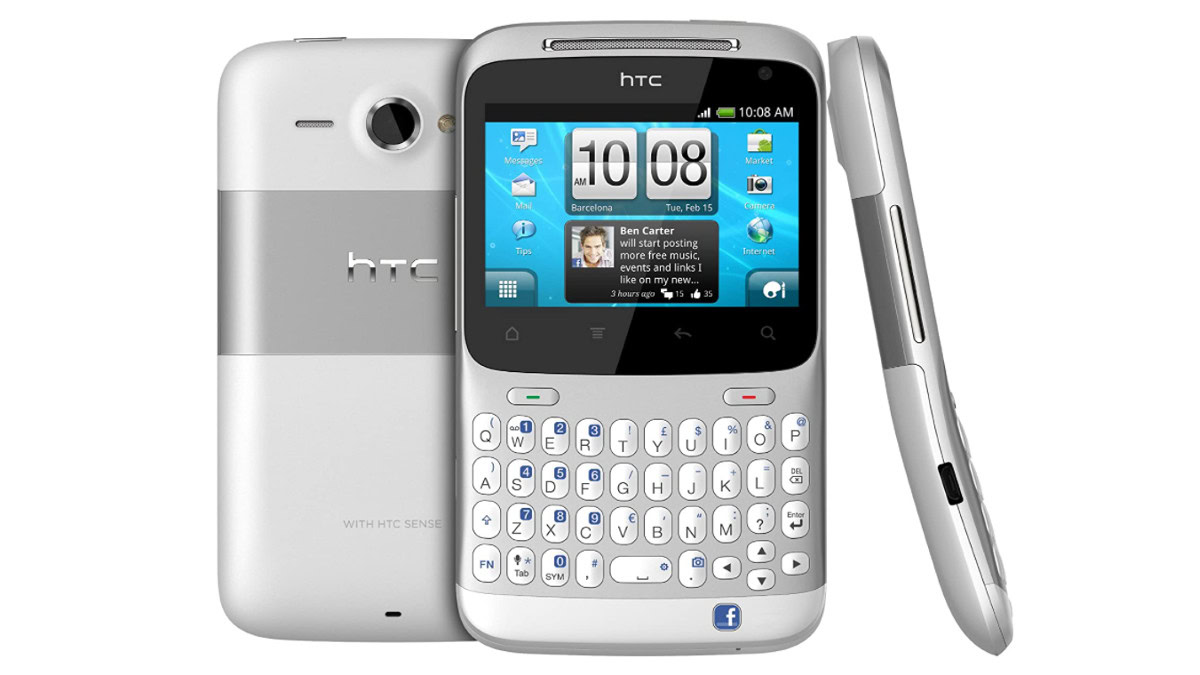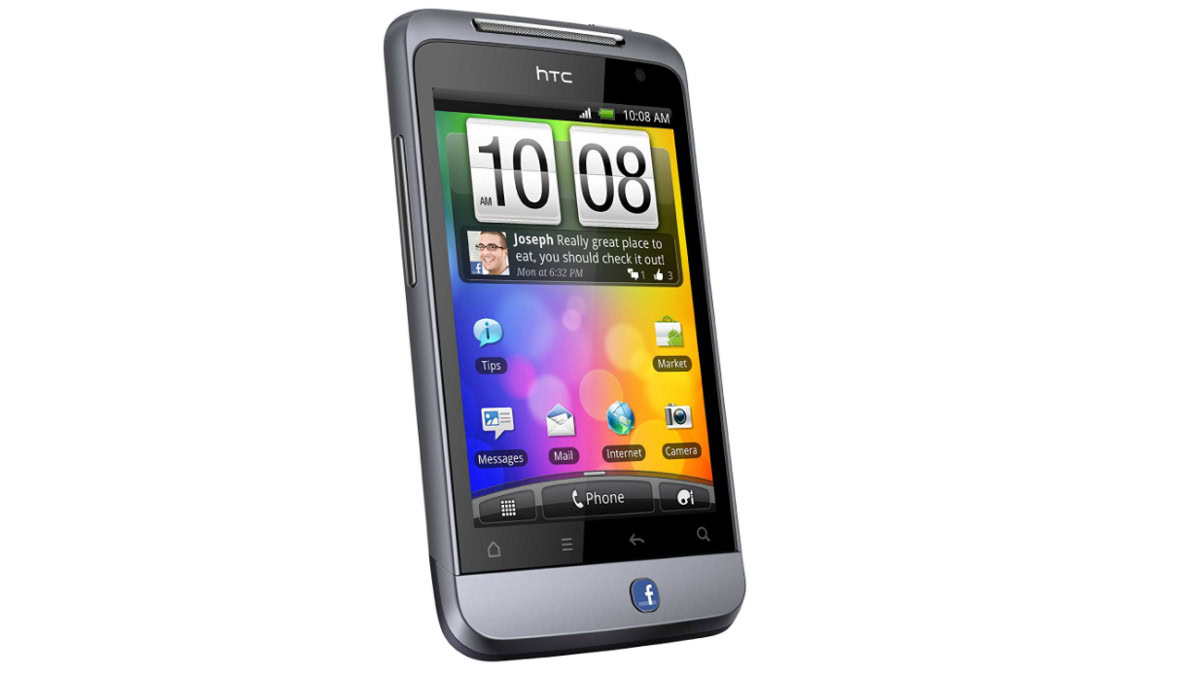Affiliate links on Android Authority may earn us a commission. Learn more.
Did you know: There were smartphones with dedicated Facebook buttons
Published onFebruary 17, 2022
There are usually only three buttons on modern smartphones, namely volume up, volume down, and the power button. Some exceptions exist, though, such as dedicated shortcut keys for voice assistants. Go back to the early 2010s, however, and you might see camera shutter buttons too. But there were a few phones in that era that came with an even stranger hardware key. Yep, we’re talking about the Facebook button.
Believe it or not, HTClaunched two devices in 2011 that came with dedicated Facebook buttons. First came the HTCStatus or ChaCha (depending on your region), which was equipped with a keypad and a small touchscreen. Then the HTCSalsa, which was a fully touch-enabled device (seen further down the page). Both had an awkwardly placed Facebook shortcut key on the chin of the phone. It almost goes without saying that this placement wouldn’t fly today due to the drive for thinner bezels.
More reading: The best HTC phones worth considering today
Nevertheless, hitting this key allowed you to quickly share photos, videos, and status updates. It sounds rather crazy right now, but it was a somewhat interesting idea at the time. Keep in mind, this was during a period when social media’s ills weren’t quite as widely accepted as they are now. This was also a time when Facebook’s most damaging privacy misdeeds (e.g. Cambridge Audio Audio Analytica) were still ahead of it or not known yet.
A one-trick pony?
The two HTCdevices were distinctly budget-tier at launch, featuring an 800Mhz single-core chipset, 512MB of RAM, and a measly 512MB of expandable storage. Rounding out the package was a 5MP rear camera, VGA-quality selfie camera, and Android 2.3 Gingerbread.
The ‘innovation’ of slapping a Facebook button on a device was aped by Nokia with its Asha feature phones later in 2012. But HTCwould double down on its initial efforts with a full-fledged Facebook-themed phone in 2013, the HTCFirst. On paper, this wasn’t a bad budget option at the time, featuring a spec sheet that compared favorably to the HTCOne Mini and Samsung Galaxy S4 Mini. But it also stepped up the Facebook integration in a crazy way.
HTC would bring a dedicated button to a third smartphone, along with a level of Facebook integration that's scary in hindsight.
The HTCFirst actually shipped with the Facebook Home launcher and yes, that was absolutely a thing. For the uninitiated, Facebook built its own home screen and lock screen replacement for Android back in 2013.

Facebook Home’s lock screen showed status updates from friends and allowed you to like and comment on said posts without unlocking your phone (although you could change this so it required your device to be unlocked). It also offered a quicker way to post status updates as well as the Chat Heads feature that’s been a fixture in Messenger since then. The launcher had some limitations at the time though, such as the inability to use widgets on home screens and a lack of customization in general.
Unfortunately for HTCand Facebook, AT&T cut the contract price of the phone from $99 to just $0.99 less than a month after launch. The carrier then decided to abandon the HTCFirst just days later owing to slow sales. We haven’t seen this concept since then, although Google Assistant buttons and remappable shortcut keys have popped up in more recent times.
It’s hard to imagine any manufacturers launching smartphones with a Facebook button in 2022 given the numerous privacy scandals surrounding the social network. But the world was clearly a different place in 2011.
This is the 20th post in our “Did you know” series, in which we dive into the history books of Android and consumer technology to uncover important and interesting facts or events that have been forgotten over time. What do you want to see us cover next? Let us know in the comments.
- Did you know: There’s a crazy conspiracy theory about the Nokia/Microsoft deal
- Did you know: Google’s first billion-dollar acquisition was a steal
- Did you know: Samsung’s first smartwatch had a camera
- Did you know: Sony once sold a Nintendo DS-style Android tablet
- Did you know: You could once buy NVIDIA-powered smartphones
- Did you know: Xiaomi’s first product wasn’t a phone
- Did you know: The first smartphone to drop the headphone jack wasn’t an iPhone
- Did you know: The most popular music streaming platform isn’t Spotify
- Did you know: Roku was nearly a part of Netflix
- Did you know: Windows 10 Mobile (almost) supported Android apps
- Did you know: This 2014 Galaxy phone had 10X optical zoom
- Did you know: The first Nokia Android phone was released way back in 2014
- Did you know: This was the first water-resistant Android phone
- Did you know: The Surface Duo wasn’t Microsoft’s first dual-screen foldable
- Did you know: HTCowned Beats before Apple
- Did you know: The LG V40 opened the era of modern triple camera phones
- Did you know: Samsung once thought Android was a joke
- Did you know: Android was originally designed for digital cameras
- Did you know: The Samsung Galaxy Note was mocked and predicted to flop at launch

